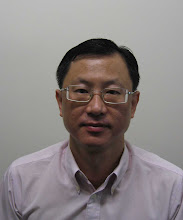Tuesday, July 30, 2013
Happiness Is Not What We Truly Want
Happiness Is Not What We Truly Want
Happiness isn't what we truly want in life, says our blogger. Rather, we seek long-term fulfillment.
(Getty im …
As a student, do you remember reciting the National Pledge every day in school?
Do you remember that “happiness” is a key word in the Pledge?
Just in case you’ve forgotten exactly how the Pledge goes, here it is for your reference:
We, the citizens of Singapore,
pledge ourselves as one united people,
regardless of race, language or religion,
to build a democratic society
based on justice and equality
so as to achieve happiness, prosperity
and progress for our nation.
What we do in the pursuit of happiness
When former Deputy Prime Minister S. Rajaratnam wrote the Pledge, I’m sure he intentionally chose the order in which the words “happiness”, “prosperity” and “progress” appear.
It’s noteworthy that “happiness” comes first.
As a nation, we prioritize happiness, and all of us want to achieve it.
(Personally, I believe that happiness isn’t something you achieve; rather, it’s something you discover and embrace every day, but that’s the topic of another article.)
In the pursuit of happiness, we…
•Accumulate the 5 Cs
•Go on vacations
•Eat at nice restaurants
•Buy a new house
•Get married
•Have children
•Strive for career success
•Buy a new phone
Happiness vs. satisfaction vs. fulfillment
Since we spend so much of our time and energy pursuing happiness, I think it’s vital that we examine the whole notion of happiness more carefully.
I recently read this Forbes article, which gave me fresh insights into the differences between happiness, satisfaction and fulfillment.
Level 1: Happiness
Happiness is a temporary emotion that we associate with pleasurable experiences.
Happiness is what you feel when you go on a roller coaster ride, eat durian (assuming you like durian), party all night, or go for drinks with your friends.
“Shiok” (or “shiok-ness”, if you want to be grammatically correct) is usually a synonym for “happiness”.
Level 2: Satisfaction
The next level is satisfaction. This is the feeling you get when you realize your goals or rack up accomplishments.
You feel satisfied when you get a job promotion, surpass your sales target, or overcome the odds to achieve your dream.
Level 3: Fulfillment
The highest level is fulfillment. You feel fulfilled when you have a sense of mission and purpose in whatever you’re doing.
You might be performing a job as a cleaner or a road sweeper, but it’s still possible to find fulfillment, because you know deep down that your contributions are valuable.
On the other hand, if you’re the CEO of a huge company, but you’re motivated solely by greed, you’re probably not going to find fulfillment.
Fulfillment is about being purpose-driven, not performance-driven. It’s about the pursuit of excellence, not perfection.
To paraphrase venture capitalist Guy Kawasaki, it’s how you feel when you seek to make meaning, not money.
Your happiness and satisfaction aren't always in your control
There’s no doubt that external factors can affect your levels of happiness and satisfaction.
Can’t afford to buy a car?
Don’t have enough money to go on vacation?
Your boss chose to promote your colleague instead of you?
Your children aren't well-behaved?
These are circumstances that could certainly make you unhappy and dissatisfied.
We want fulfillment more than we want happiness
But I dare say that, at a deeper level, we don’t want happiness or satisfaction. We want long-lasting fulfillment.
It takes an intentional effort to find purpose and meaning in whatever roles you have in life, whether it’s as a student, parent, employee or entrepreneur.
It takes a willingness to reflect on who you are, who you want to become, and what values you want to live by. It most definitely takes commitment and courage to live a principles-centered life that will result in fulfillment.
Fulfillment doesn't happen by luck
But the good news is that finding fulfillment doesn't happen by chance. It happens by choice.
We need to take full responsibility for our attitude and our decisions.
When we choose to make the best of every situation, when we choose to show people that they matter, when we choose to embrace life—all of it, not just the joyous moments—that’s when we put ourselves in a position to find fulfillment.
In closing
There’s no doubt that happiness and satisfaction are important parts of life.
There would be something missing in our lives if we didn't have any “shiok” experiences or if we didn't have the opportunity to attain our goals, right?
But let’s not short-change ourselves and our country by focusing on happiness and satisfaction, when what we really want is fulfillment.
Daniel Wong is a learning and personal development expert, as well as a certified youth counselor. A sought-after speaker and coach, he is also the best-selling author of "The Happy Student: 5 Steps to Academic Fulfillment and Success". He offers programmes to help students become both happy and successful and to help parents to connect more effectively with their children. He writes regularly at www.daniel-wong.com. Download his FREE e-book, "The Unhappiness Manifesto: Do You Make These 150 Mistakes In The Pursuit Of Happiness?", here.
Subscribe to:
Post Comments (Atom)


No comments:
Post a Comment